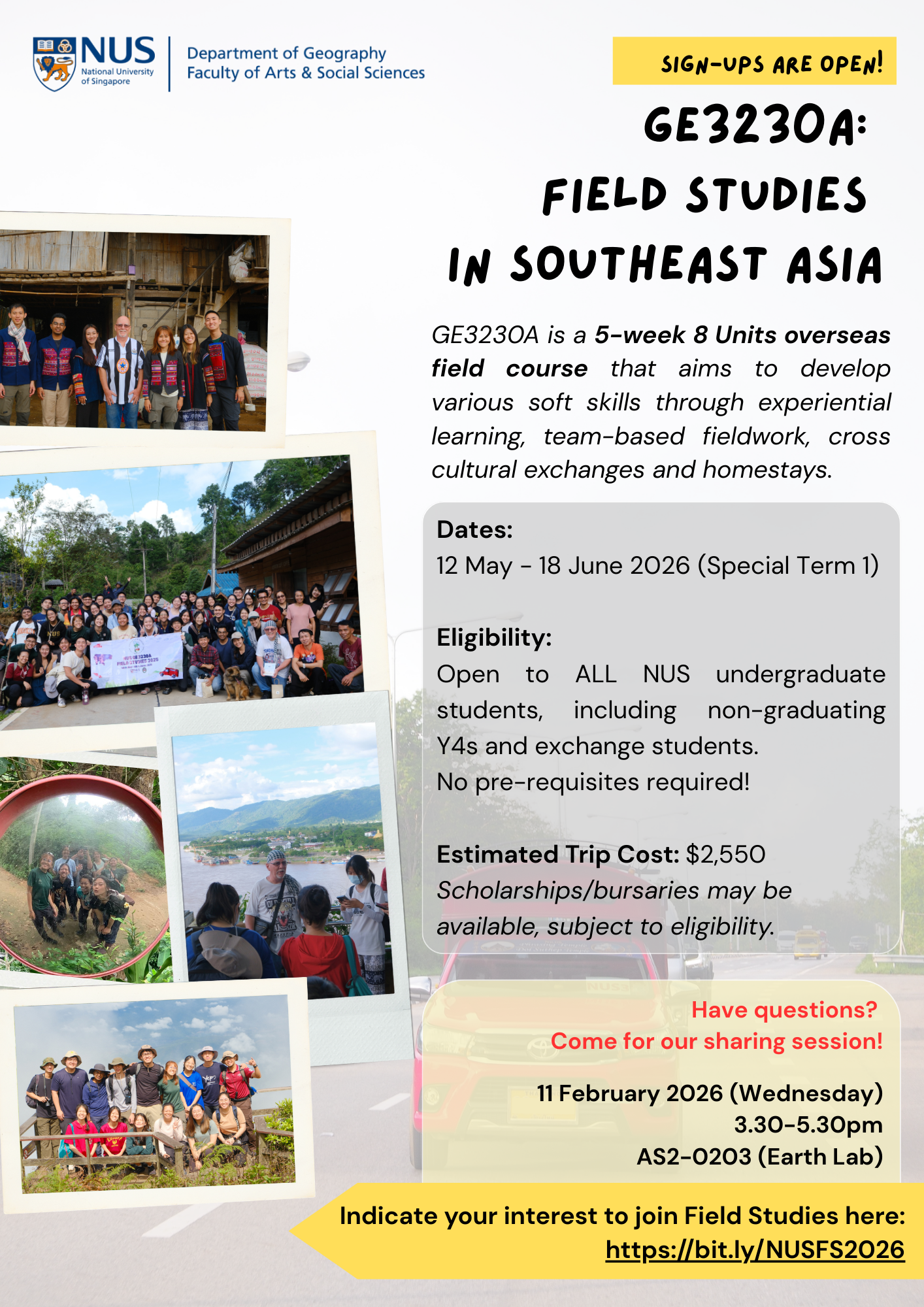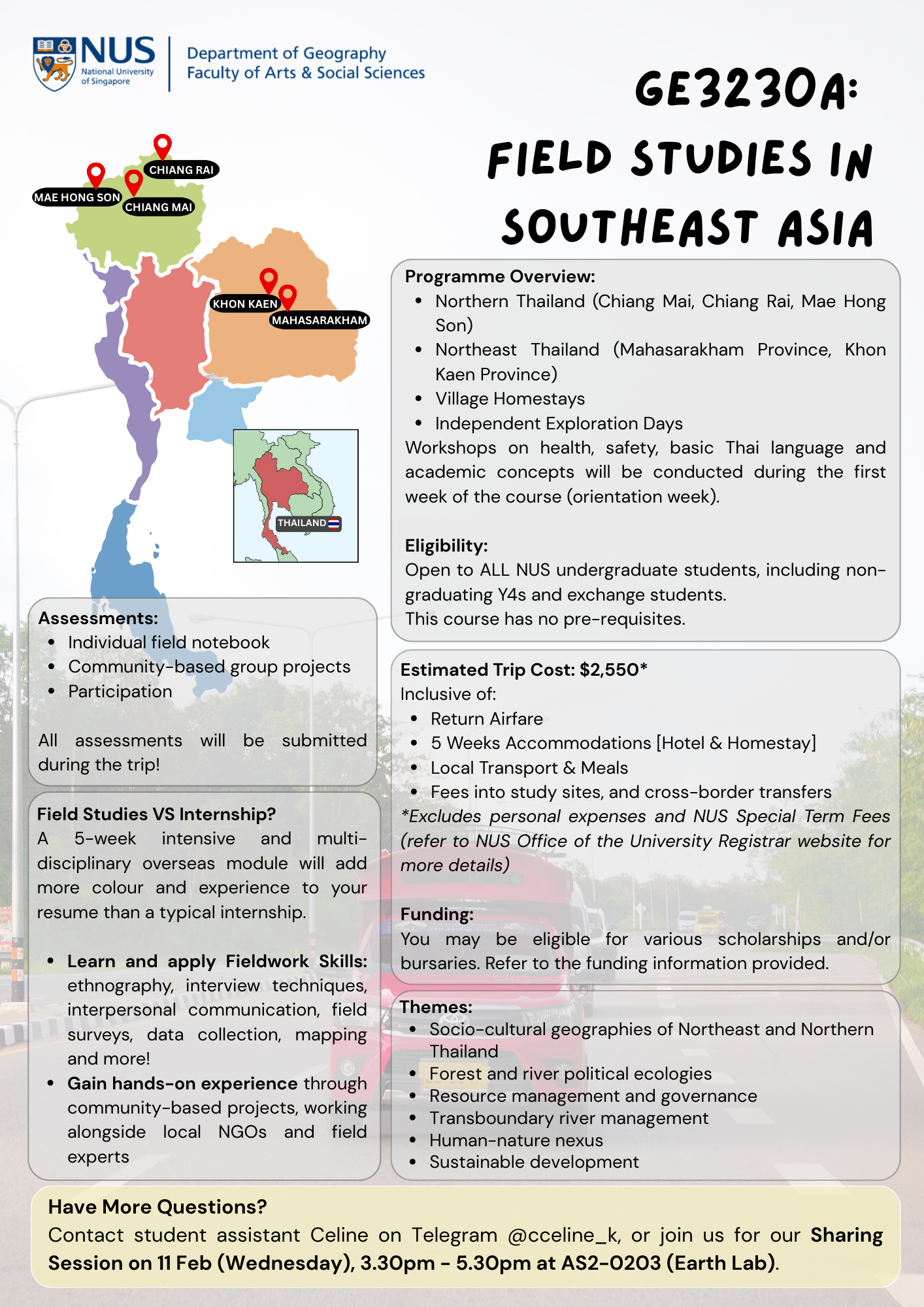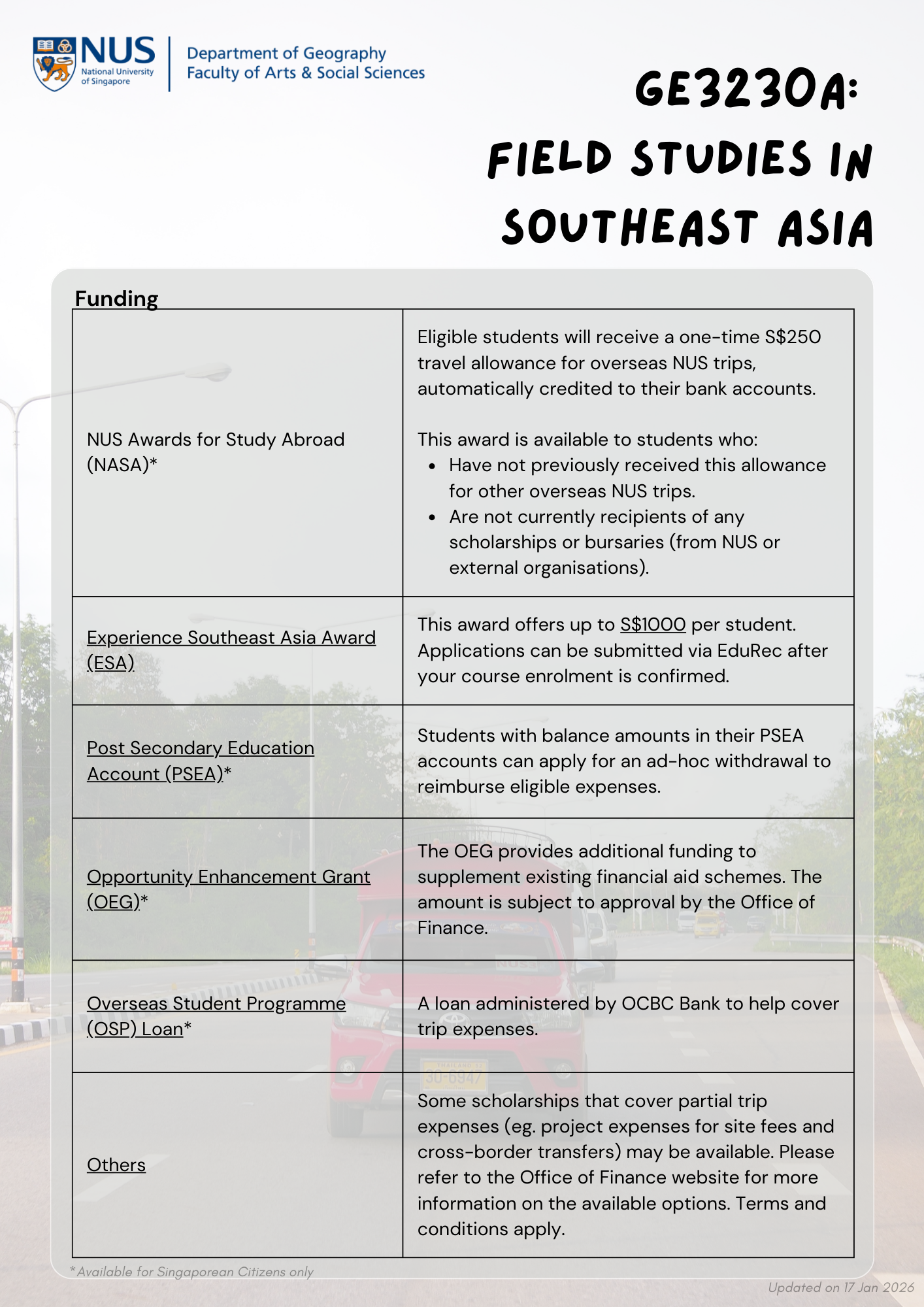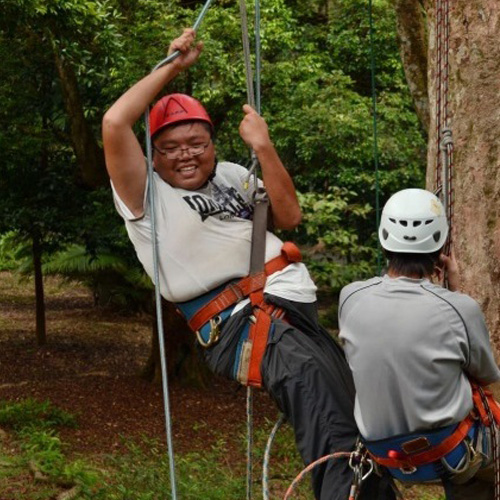Geography at NUS equips you to critically evaluate the physical and human processes that shape our world to help build a more sustainable, just future.
From your first year, you will journey through core courses that introduce you to both the physical environment and the diverse political, economic, and cultural forces shaping contemporary societies. Along the way, you will learn how to see the world differently: connecting urban landscapes, climate, and ecosystems with questions of power, inequality, and everyday life. By combining human and physical geography, our program nurtures a distinct “geographical imagination”—a way of thinking that values complexity and connection in addressing the most pressing challenges of our time.
As you progress through the program, you will dive deeper into pressing issues that define our era: climate change, energy futures, global migration, urban transformations, and sustainable development. You will gain hands-on experience with Geographic Information Systems (GIS), remote sensing, qualitative and quantitative methods, and real-world field research across Singapore and the region. Opportunities for internships, independent research, and an Honours thesis allow you to further apply knowledge in impactful ways. By graduation, you will not only better understand the world, but be prepared to shape it by pursuing careers in urban planning, environmental management, social policy, conservation, research, and more.
Programmes
Whether you are interested in people, places, or the environment, there is a Geography programme for you.
Major in Geography
Cross-Disciplinary
Opportunities & Student Life
Programmes
Whether you are interested in people, places, or the environment, there is a Geography programme for you.
Major in Geography
Cross-Disciplinary
Opportunities & Student Life
Field-Based Learning
GE3230A: Field Studies in Southeast Asia (Special Term 1)
GE3230A is a 5-week overseas field course that offers students the opportunity to learn geography where it unfolds on the ground. Through fieldwork, homestays, and community-based projects in Southeast Asia, students gain hands-on experience, regional knowledge, and critical field skills.
Upcoming Sharing Session: 11 Feb 2026 (3.30-5.30pm) @ AS2-0302 (Seminar Room)
With Geography, the world is your workplace.
A teacher at the Ministry of Education. A planner at the Urban Redevelopment Authority. An industry development specialist at the Singapore Tourism Board.
A journalist at Channel NewsAsia. An Employer Branding Specialist at KPMG. A pilot with Singapore Airlines.
The founders of Foreword Coffee and GreenLoop Farms. Internships at Disney and Shopee.
A Geography degree turns classroom learning into real-world impact across public, private, and entrepreneurial sectors.
With critical thinking, global awareness, and specialised skills, our graduates tackle the world’s wicked problems and build meaningful futures.
Frequently Asked Questions
Students will be exposed to the 'geographical' imagination (a spatial and holistic method of thinking) early on in the programme, through a suite of carefully curated courses that span the major divisions of the discipline.
After that, students can go on to choose their interests, which cover multiple topics and scales, from tourism landscapes, to agrarian lands, to networks of global cities, to planetary issues such as climate change and resource exploitation.
No, a prior knowledge of academic geography is not necessary, although it helps to be curious about the world, and to be prepared to think in a lateral and integrated manner.
We believe in looking at issues across multiple spatial and scalar domains (e.g. cities and rural regions halfway round the world)
Besides the usual university programmes such as student exchange and summer schools, Geography students enjoy the added opportunity to take one of our field studies courses (accredited like a classroom course). These are offered in both the regular and special terms, and we have ventured to various countries in Southeast Asia, as well as East Africa.
While we do not offer noncompetitive internship opportunities available only to the Department, Geography students stand an outsized chance to land job training positions during their vacation periods due to our reputation and the track record of our alumni.
Yes, Geography is the hosting and coordinating department for five minor programmes that can be taken with a major. These are Aquatic Ecology, Geosciences, GIS, Urban Studies, and Environmental Sustainability. In addition, we jointly offer a Bachelor in Environmental Studies (BES) programme with the Department of Biological Sciences.
These programmes aim to provide students with more specialized training in specific fields that have industry relevance.
Public assumption would say "teacher", but this is not true. Because of their holistic training and technical knowledge of GIS, our graduates can be found in government arms such as URA, SLA, STB, MFA and MOT, as well as private sector jobs such as Temasek, Sea Group and Singtel.
Some of our graduates now work overseas after gaining employment in Singapore for a few years.


















